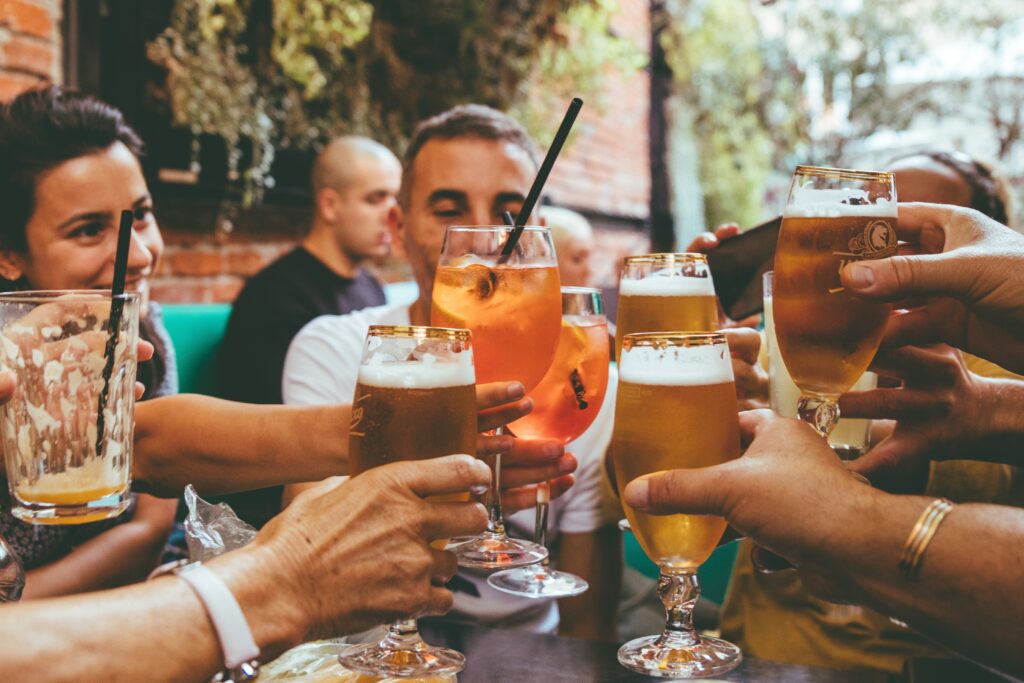Navigating Food Licenses for Breweries, Brewpubs, Wineries, and Distilleries

If you’re thinking about starting a brewery, brewpub, winery, or distillery, it’s important to understand that these businesses require special licensing for both alcohol and food. While alcohol has its unique regulations, it is still considered a food product by the primary food regulatory agencies. In this blog post, we will explore the requirements for obtaining food licenses and the relevant agencies involved to help you navigate this process.
What Makes Alcohol Special
Making or selling alcohol requires special federal, state and sometimes local permission. There are two goals when it comes to regulating the manufacturing and sale of alcoholic beverages: first, ensuring that the federal and state excise taxes that apply to the creation or importation of alcohol are accurately determined and paid. Second, ensuring that federal and state regulations about serving alcohol are enforced. In this way, alcoholic beverages are unique. However, having these unique requirements doesn’t exclude alcoholic beverages from requiring the additional food, health, and hygiene licenses we typically associate with food.
Alcoholic Beverages as Food
Although we don’t typically think of alcoholic beverages as food, they fall under the jurisdiction of primary food regulatory agencies. While they may be exempt from certain food-specific laws, it’s essential to obtain the necessary food licenses to ensure compliance with state regulations regarding food safety and hygiene.
Requirements
Companies that sell alcohol directly to consumers or handle alcohol are required to have appropriate food safety licenses. However, companies involved in importing, exporting, or distributing packaged alcohol products may not require food safety licensing.
Primary Food Regulatory Agencies in Florida
In Florida, there are three primary food regulatory agencies that you will likely encounter:
- The Department of Business and Professional Regulation, Division of Hotels & Restaurants (DBPR)
- The Department of Agriculture and Consumer Services (FDACS)
- The Department of Health (DOH)
Florida’s 4 Food Licensing Structures
In Florida, there are four different food licensing structures that an alcohol manufacturer or retailer may require. Typically, a company will only need one food safety license, and the specific license depends on the company’s operations.
- Florida Department of Health’s Food Hygiene Inspection Program: This program ensures that products sold to consumers do not pose a risk of foodborne illnesses. It applies to establishments such as bars, nightclubs, and lounges that do not prepare time and temperature control non-beverage foods like beverages, popcorn, hot dogs, and nachos. Most brewery taprooms and winery/distillery tasting rooms that do not serve hot food fall under this program. Codes and standards for these establishments are in Florida Statutes Chapter 500 and Chapter 64E-11, Florida Administrative Code.
- Florida Division of Hotels and Restaurants Public Food Service Establishment License: This license is required for restaurants and other establishments that predominantly serve food.
- FDACS – Retail Food Establishment Permit: This permit is necessary for food establishments (other than restaurants) that directly sell food to consumers, including supermarkets, grocery stores, convenience stores, coffee shops, and bakeries.
- FDACS Wholesale/Manufactured Food Establishment: This permit applies to food establishments involved in manufacturing, processing, packing, holding, or preparing food for sale or distribution to other businesses, including bottled water plants, food processing plants, and food storage warehouses.
Conclusion
If you are planning to start a beverage business like a brewery, brewpub, winery, or distillery, you’ll probably need a food safety license in addition to the alcohol licenses. The type of food license(s) you need will depend on how food is handled and served in your business. It is important to determine whether your business requires approval from the Department of Health’s Food Hygiene Inspection Program, the Division of Hotels and Restaurants Public Food Service Establishment License, the Retail Food Establishment Permit, or the Wholesale/Manufactured Food Establishment Permit. Familiarize yourself with the relevant agencies in Florida, such as the DBPR, FDACS, and DOH, to ensure compliance with the necessary regulations. By obtaining the appropriate food licenses, you can ensure the safety and hygiene of your operations and provide a positive experience for your customers.
Do you have questions about food safety licenses in Florida? Contact us to schedule a consultation with an attorney.
Because we’re attorneys: Disclaimer. Posted 06/18/2023.

